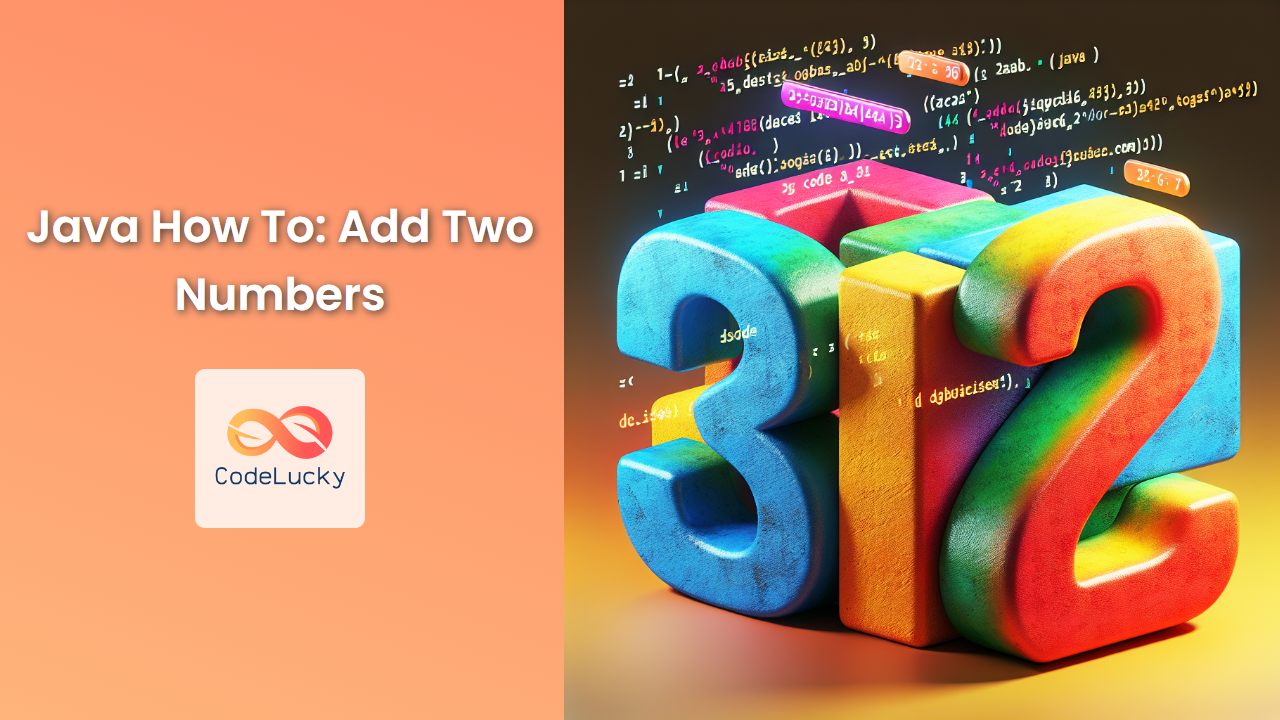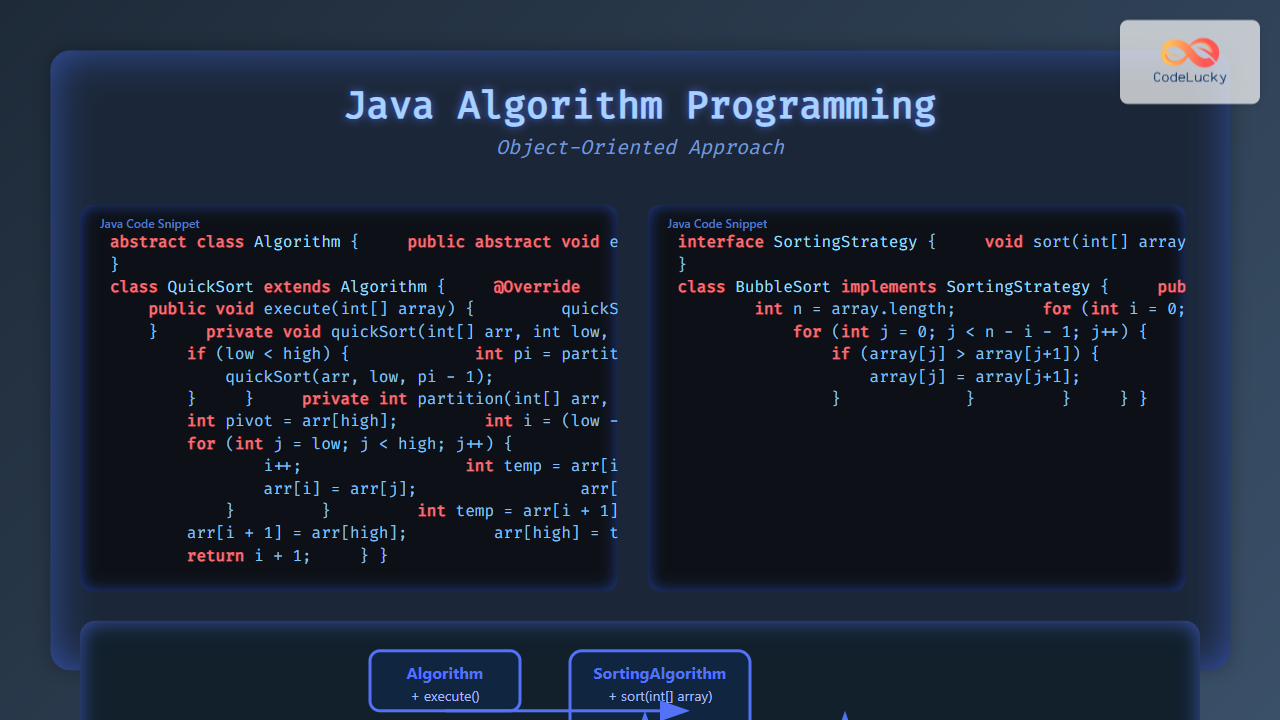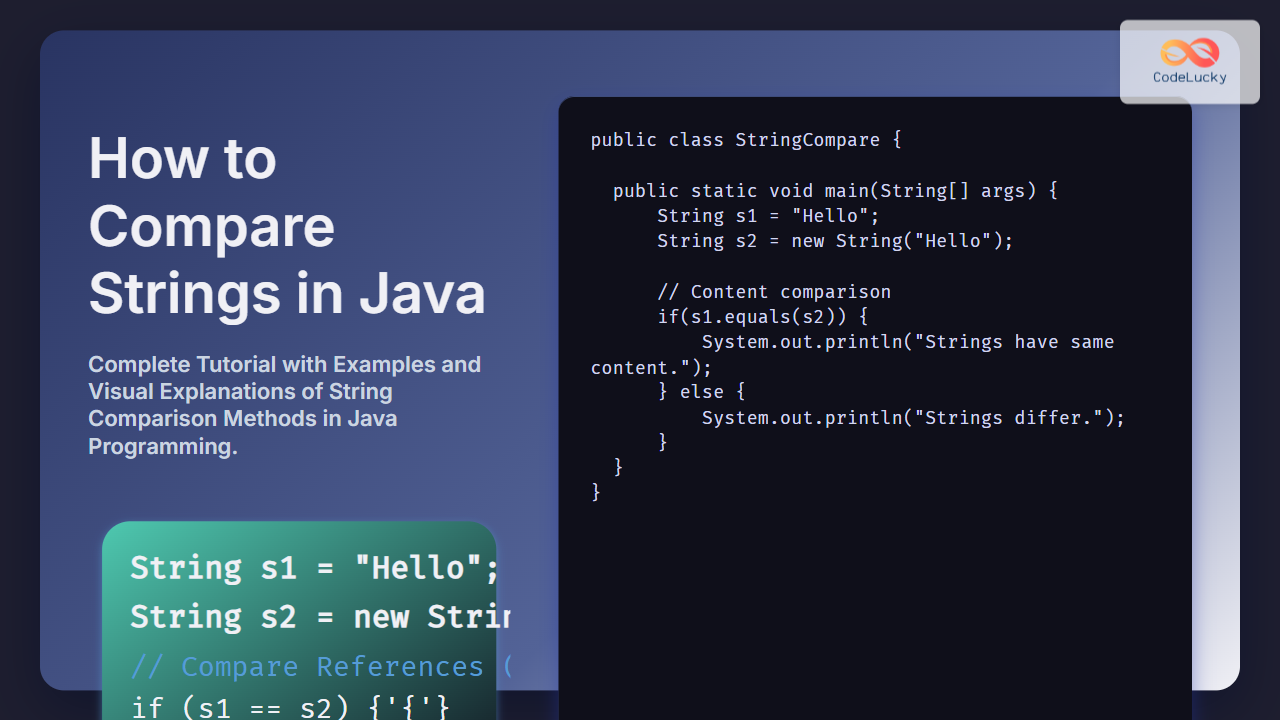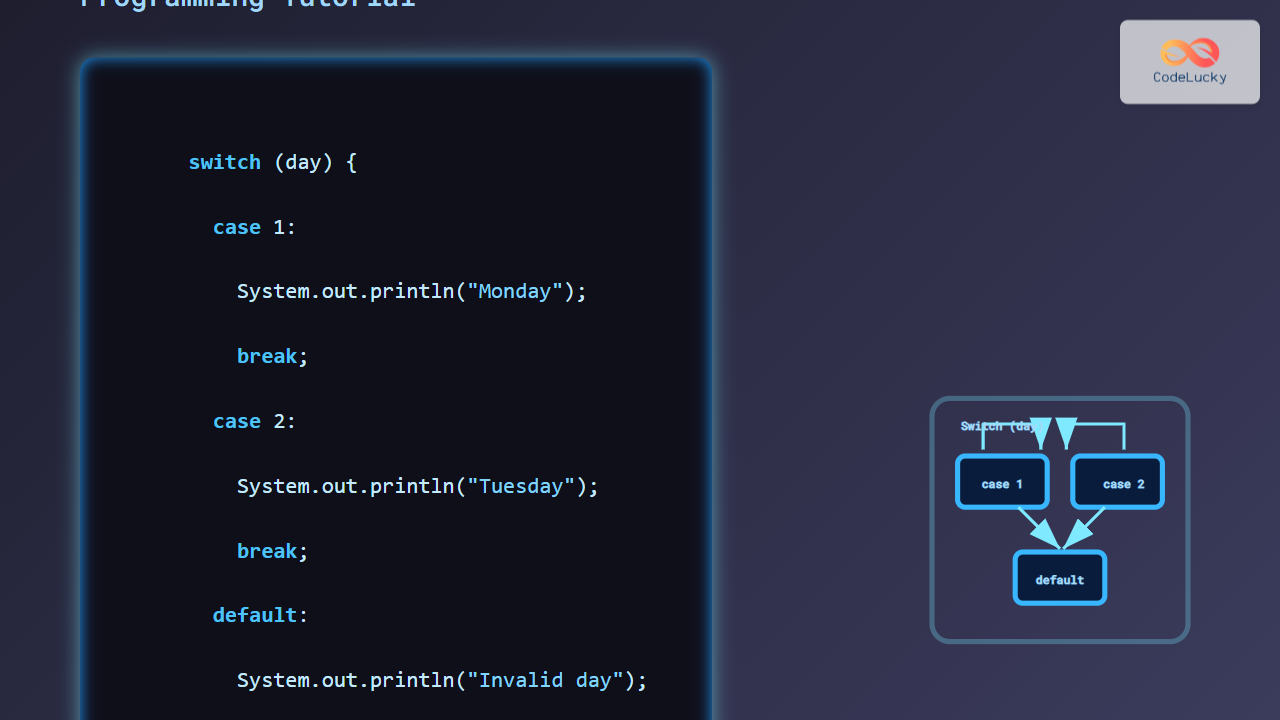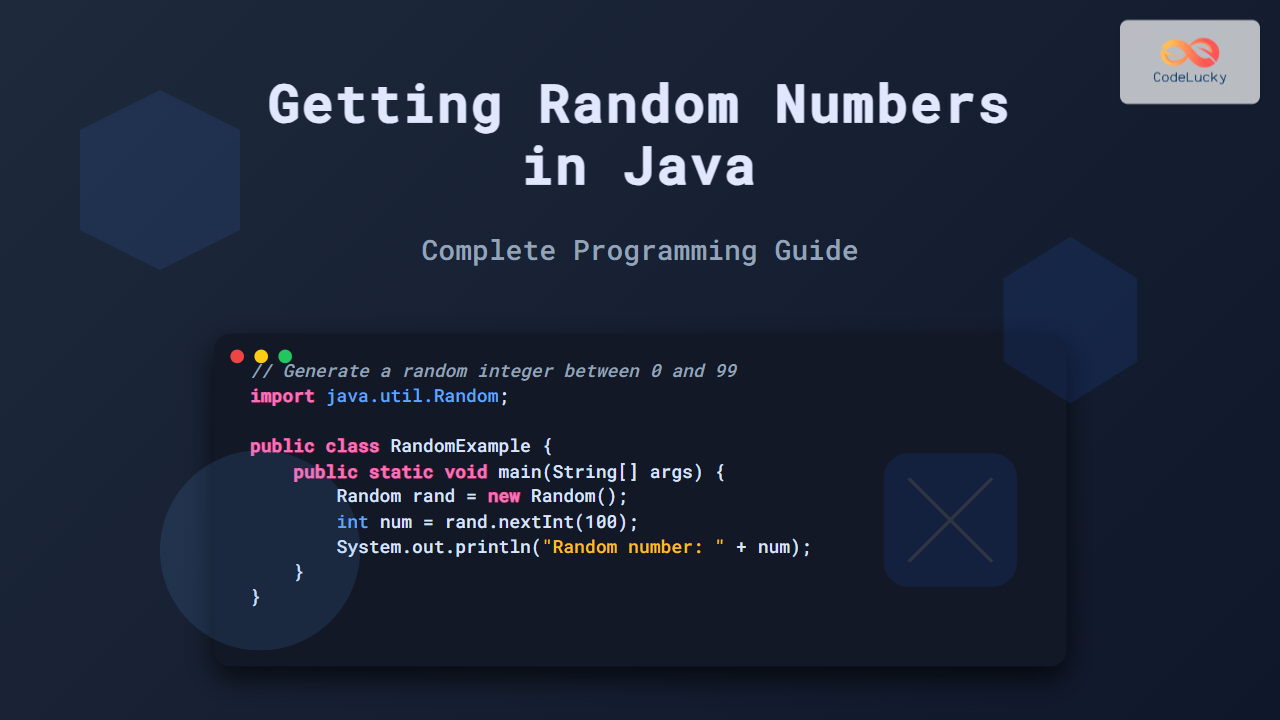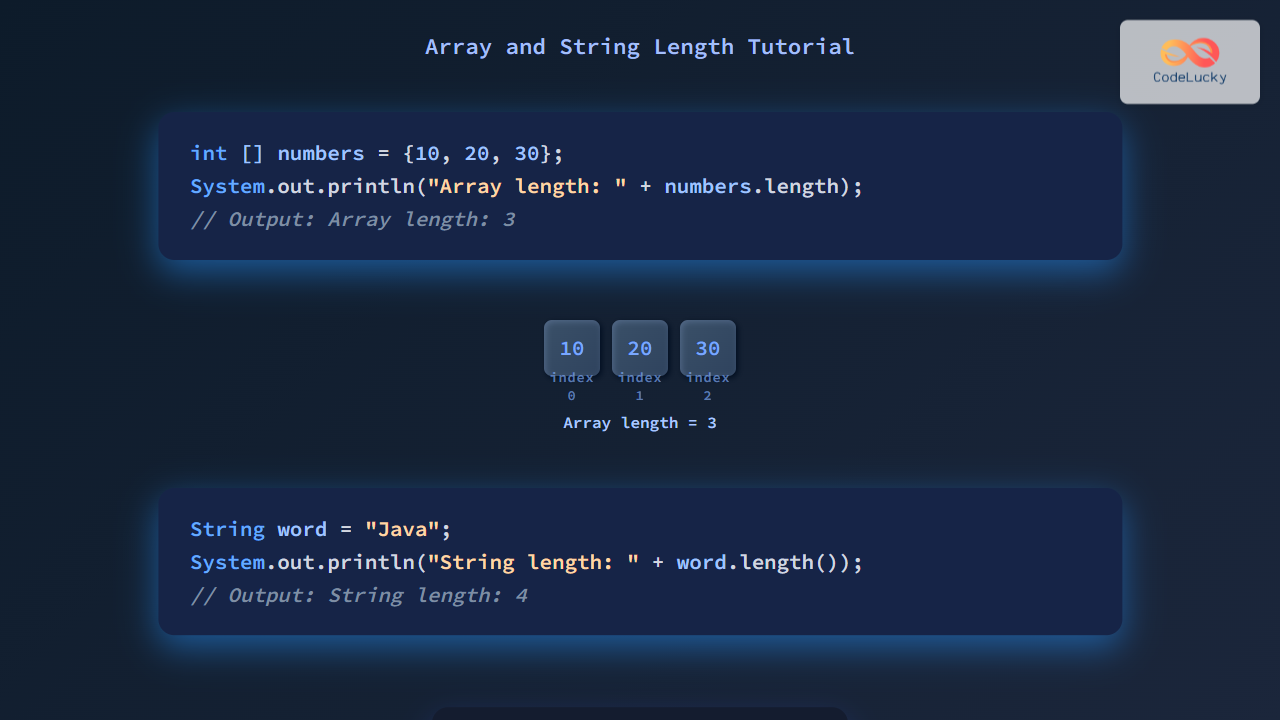Java, one of the most popular programming languages, offers various ways to perform arithmetic operations. One of the most basic yet fundamental operations is addition. In this comprehensive guide, we'll explore different methods to add two numbers in Java, from simple integer addition to handling complex scenarios with floating-point numbers and large integers.
Basic Integer Addition
Let's start with the simplest case: adding two integers.
public class BasicAddition {
public static void main(String[] args) {
int num1 = 5;
int num2 = 7;
int sum = num1 + num2;
System.out.println("Sum: " + sum);
}
}
Output:
Sum: 12
In this example, we use the + operator to add two integers. Java's + operator is straightforward and efficient for basic integer addition.
🔑 Key Point: The + operator in Java can be used for both addition and string concatenation. When used with numeric types, it performs addition.
Adding Floating-Point Numbers
When working with decimal numbers, we use floating-point types like float or double.
public class FloatingPointAddition {
public static void main(String[] args) {
double num1 = 3.14;
double num2 = 2.86;
double sum = num1 + num2;
System.out.println("Sum: " + sum);
}
}
Output:
Sum: 6.0
🚨 Warning: Be cautious when working with floating-point numbers, as they can introduce precision errors due to their binary representation.
Adding Large Numbers with BigInteger
For extremely large numbers that exceed the range of long, we use the BigInteger class.
import java.math.BigInteger;
public class BigIntegerAddition {
public static void main(String[] args) {
BigInteger num1 = new BigInteger("123456789012345678901234567890");
BigInteger num2 = new BigInteger("987654321098765432109876543210");
BigInteger sum = num1.add(num2);
System.out.println("Sum: " + sum);
}
}
Output:
Sum: 1111111110111111111011111111100
The BigInteger class provides methods like add() for arithmetic operations on large numbers.
💡 Pro Tip: Use BigInteger when dealing with numbers larger than 2^63-1 (the maximum value for long).
User Input Addition
Let's create a program that adds two numbers input by the user.
import java.util.Scanner;
public class UserInputAddition {
public static void main(String[] args) {
Scanner scanner = new Scanner(System.in);
System.out.print("Enter first number: ");
double num1 = scanner.nextDouble();
System.out.print("Enter second number: ");
double num2 = scanner.nextDouble();
double sum = num1 + num2;
System.out.println("Sum: " + sum);
scanner.close();
}
}
This program uses the Scanner class to read user input. It can handle both integer and floating-point inputs.
🔧 Best Practice: Always close the Scanner object after use to prevent resource leaks.
Method for Addition
Creating a method for addition enhances code reusability and readability.
public class AdditionMethod {
public static double add(double a, double b) {
return a + b;
}
public static void main(String[] args) {
double num1 = 10.5;
double num2 = 20.7;
double result = add(num1, num2);
System.out.println("Sum: " + result);
}
}
Output:
Sum: 31.2
This approach allows you to perform addition operations throughout your program without repeating code.
Handling Overflow
When adding large integers, be aware of potential overflow issues.
public class OverflowHandling {
public static void main(String[] args) {
int maxInt = Integer.MAX_VALUE;
System.out.println("Max int value: " + maxInt);
int result = maxInt + 1;
System.out.println("Max int + 1: " + result);
// Using long to handle overflow
long safeResult = (long)maxInt + 1;
System.out.println("Safe addition: " + safeResult);
}
}
Output:
Max int value: 2147483647
Max int + 1: -2147483648
Safe addition: 2147483648
🚨 Warning: Adding beyond the maximum value of an integer type causes overflow, wrapping around to negative values.
Adding Arrays of Numbers
Sometimes, you might need to add all numbers in an array.
public class ArrayAddition {
public static int sumArray(int[] numbers) {
int sum = 0;
for (int number : numbers) {
sum += number;
}
return sum;
}
public static void main(String[] args) {
int[] numbers = {1, 2, 3, 4, 5};
int result = sumArray(numbers);
System.out.println("Sum of array: " + result);
}
}
Output:
Sum of array: 15
This method uses a for-each loop to iterate through the array and sum up all elements.
Adding Complex Numbers
Java doesn't have a built-in complex number type, but we can create a class to represent complex numbers.
class ComplexNumber {
private double real;
private double imaginary;
public ComplexNumber(double real, double imaginary) {
this.real = real;
this.imaginary = imaginary;
}
public ComplexNumber add(ComplexNumber other) {
double newReal = this.real + other.real;
double newImaginary = this.imaginary + other.imaginary;
return new ComplexNumber(newReal, newImaginary);
}
@Override
public String toString() {
return real + " + " + imaginary + "i";
}
}
public class ComplexAddition {
public static void main(String[] args) {
ComplexNumber c1 = new ComplexNumber(3, 2);
ComplexNumber c2 = new ComplexNumber(1, 7);
ComplexNumber sum = c1.add(c2);
System.out.println("Sum: " + sum);
}
}
Output:
Sum: 4.0 + 9.0i
This example demonstrates how to create a custom class for complex numbers and implement addition for them.
Using Stream API for Addition
For those familiar with Java 8+, the Stream API provides a concise way to sum numbers.
import java.util.Arrays;
public class StreamAddition {
public static void main(String[] args) {
int[] numbers = {1, 2, 3, 4, 5};
int sum = Arrays.stream(numbers).sum();
System.out.println("Sum using Stream: " + sum);
// For double values
double[] doubles = {1.5, 2.7, 3.2, 4.1, 5.9};
double doubleSum = Arrays.stream(doubles).sum();
System.out.println("Sum of doubles: " + doubleSum);
}
}
Output:
Sum using Stream: 15
Sum of doubles: 17.4
The Stream API provides a clean and functional approach to sum arrays of numbers.
Conclusion
Adding numbers in Java can range from simple integer addition to complex scenarios involving custom types and large numbers. By understanding these various methods and their appropriate use cases, you can write more efficient and robust Java programs.
Remember these key points:
- Use the
+operator for simple additions - Be cautious with floating-point precision
- Utilize
BigIntegerfor very large numbers - Create custom methods or classes for specific addition needs
- Be aware of potential overflow issues
- Leverage the Stream API for concise array summations
Mastering these techniques will greatly enhance your Java programming skills and prepare you for more complex mathematical operations in your future projects.

